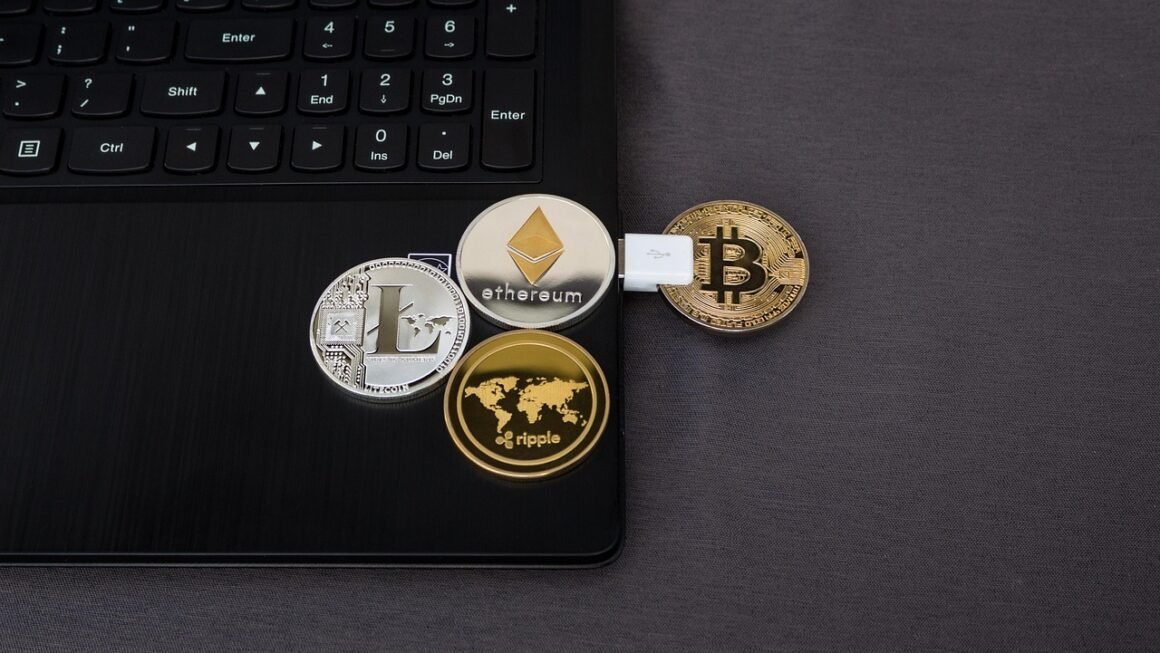Bitcoin: Unlocking the World of Decentralized Digital Currency
Bitcoin has revolutionized the financial landscape, introducing a new era of digital currency that operates independently of traditional banking systems. Whether you’re a seasoned investor or just curious about the buzz, understanding Bitcoin is crucial in today’s rapidly evolving technological world. This guide delves into the core concepts, benefits, and practical applications of Bitcoin, equipping you with the knowledge to navigate this exciting digital frontier.
What is Bitcoin?
The Genesis of Bitcoin
Bitcoin is a decentralized digital currency, also known as a cryptocurrency, created in 2009 by an anonymous person or group of people using the pseudonym Satoshi Nakamoto. Its key innovation lies in its use of blockchain technology, a distributed ledger that records all transactions publicly and immutably.
How Bitcoin Works: The Blockchain
The blockchain is the backbone of Bitcoin. It’s a public, distributed, and encrypted database that records every Bitcoin transaction. Each block in the chain contains a set of transactions, a timestamp, and a cryptographic hash of the previous block, making it extremely difficult to alter or tamper with the data.
- Decentralization: No single entity controls the network, making it resistant to censorship and single points of failure.
- Transparency: All transactions are publicly recorded on the blockchain, though user identities are pseudonymous.
- Security: Cryptographic hashing and the distributed nature of the blockchain make it highly secure.
- Immutability: Once a transaction is confirmed and added to the blockchain, it cannot be reversed or altered.
Mining Bitcoin
Bitcoin mining is the process of verifying and adding new transaction records to the blockchain. Miners use powerful computers to solve complex mathematical problems, and the first miner to solve the problem adds the next block to the chain. As a reward, the miner receives newly minted Bitcoin, incentivizing them to maintain the integrity of the network. The mining process also controls the rate at which new Bitcoins are created.
Example: Miners compete to find a hash value that meets specific criteria. The reward for successfully mining a block is currently 6.25 BTC (as of 2024), halved approximately every four years.
Benefits of Using Bitcoin
Decentralization and Independence
One of the primary advantages of Bitcoin is its decentralized nature. Unlike traditional currencies controlled by central banks, Bitcoin operates independently, free from government or institutional control. This offers users greater autonomy and control over their funds.
Lower Transaction Fees
Bitcoin transactions can often have lower fees compared to traditional banking systems, especially for international transfers. While fees can fluctuate based on network congestion, they are generally more competitive, especially for large transactions.
Example: Sending $1 million worth of Bitcoin might incur a fee of a few dollars, while a traditional wire transfer could cost hundreds or even thousands of dollars.
Transparency and Security
The blockchain’s transparent nature means all transactions are publicly verifiable. While user identities are pseudonymous, the public ledger allows anyone to track transactions and verify their legitimacy. The cryptographic security of the blockchain makes it extremely difficult to hack or manipulate.
Global Accessibility
Bitcoin enables seamless international transactions without the need for intermediaries. This makes it particularly useful for individuals and businesses operating in countries with unstable currencies or limited access to traditional banking services.
Potential for Investment
Bitcoin has demonstrated significant price appreciation over the years, attracting investors seeking alternative assets with high growth potential. However, it’s important to note that Bitcoin is also highly volatile, and its price can fluctuate dramatically. Therefore, it should be considered a high-risk, high-reward investment.
Understanding Bitcoin Wallets
Types of Bitcoin Wallets
A Bitcoin wallet is a software or hardware device that allows you to store, send, and receive Bitcoin. There are several types of wallets available:
- Software Wallets: These wallets are installed on your computer or mobile device and offer convenient access to your Bitcoin. Examples include Exodus, Electrum, and Mycelium.
- Hardware Wallets: These are physical devices designed to store your Bitcoin offline, providing an extra layer of security against hacking and malware. Examples include Ledger and Trezor.
- Online Wallets: These wallets are hosted by third-party providers and offer easy access to your Bitcoin from any device. However, they also carry the risk of being hacked or subject to the provider’s policies. Examples include Coinbase and Binance.
- Paper Wallets: These wallets involve printing your Bitcoin addresses and private keys on a piece of paper and storing it offline. While they offer high security, they require careful handling to avoid loss or damage.
Securing Your Bitcoin Wallet
Security is paramount when it comes to Bitcoin wallets. Here are some essential security tips:
- Use strong passwords: Create unique and complex passwords for your wallet and online accounts.
- Enable two-factor authentication (2FA): This adds an extra layer of security by requiring a code from your mobile device in addition to your password.
- Store your private keys securely: Never share your private keys with anyone, and store them in a safe and offline location.
- Keep your software updated: Regularly update your wallet software to patch any security vulnerabilities.
- Use a hardware wallet: Consider using a hardware wallet for storing large amounts of Bitcoin.
- Backup your wallet: Regularly back up your wallet to prevent loss of funds in case of hardware failure or other unforeseen events.
Example: Setting up a Software Wallet
To set up a software wallet, download and install a reputable wallet like Electrum or Exodus. Follow the instructions to create a new wallet and securely store your seed phrase (a series of words used to recover your wallet in case you lose access). Enable two-factor authentication for added security.
Buying and Selling Bitcoin
Choosing a Bitcoin Exchange
To buy or sell Bitcoin, you’ll need to use a Bitcoin exchange. These platforms facilitate the trading of Bitcoin and other cryptocurrencies for fiat currencies (like USD or EUR) or other cryptocurrencies. Popular exchanges include Coinbase, Binance, Kraken, and Gemini.
Steps to Buying Bitcoin
- Create an account: Sign up for an account on a reputable Bitcoin exchange.
- Verify your identity: Most exchanges require you to verify your identity by providing personal information and documentation.
- Deposit funds: Deposit funds into your account using a bank transfer, credit card, or other accepted payment method.
- Place an order: Place an order to buy Bitcoin at the current market price or set a limit order to buy at a specific price.
- Store your Bitcoin: Once you’ve purchased Bitcoin, transfer it to a secure Bitcoin wallet that you control.
Selling Bitcoin
- Transfer Bitcoin to the exchange: Transfer your Bitcoin from your wallet to your exchange account.
- Place a sell order: Place an order to sell Bitcoin at the current market price or set a limit order to sell at a specific price.
- Withdraw funds: Once your Bitcoin has been sold, withdraw the funds to your bank account or another payment method.
Understanding Order Types
- Market Order: An order to buy or sell Bitcoin immediately at the best available price.
- Limit Order: An order to buy or sell Bitcoin at a specific price. The order will only be executed if the market price reaches the specified price.
- Stop-Loss Order: An order to sell Bitcoin when the price falls below a specified level, helping to limit potential losses.
The Future of Bitcoin
Bitcoin’s Evolution
Bitcoin has come a long way since its inception. From being a niche technology to a mainstream asset, its adoption continues to grow. The development of layer-2 solutions like the Lightning Network aims to improve Bitcoin’s scalability and transaction speed, making it more suitable for everyday transactions.
Regulatory Landscape
The regulatory landscape surrounding Bitcoin is constantly evolving. Some countries have embraced Bitcoin, while others have imposed restrictions or outright bans. Understanding the regulatory environment in your jurisdiction is crucial for compliance.
Potential Use Cases
Beyond its role as a store of value, Bitcoin has the potential for various use cases, including:
- Cross-border payments: Facilitating faster and cheaper international transactions.
- Decentralized finance (DeFi): Powering decentralized financial applications and services.
- Micropayments: Enabling small-value transactions for content creators and online services.
- Remittances: Providing a more efficient and cost-effective way for migrants to send money home.
- Store of value: Serving as a hedge against inflation and currency devaluation.
Conclusion
Bitcoin represents a significant innovation in the world of finance, offering a decentralized, transparent, and secure alternative to traditional currencies. While it comes with its own set of risks and challenges, understanding the fundamentals of Bitcoin is essential for anyone looking to participate in the digital economy. As Bitcoin continues to evolve and mature, its potential impact on the global financial system remains significant. By staying informed and adopting best security practices, you can navigate the world of Bitcoin with confidence.



